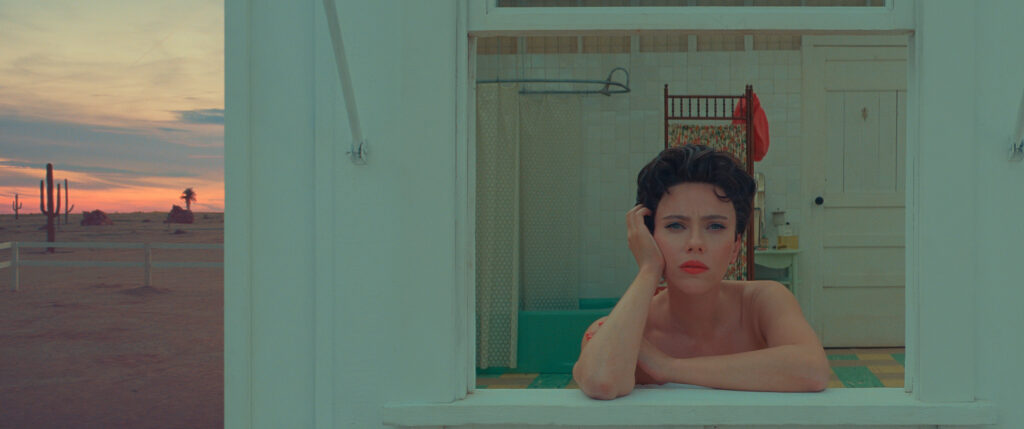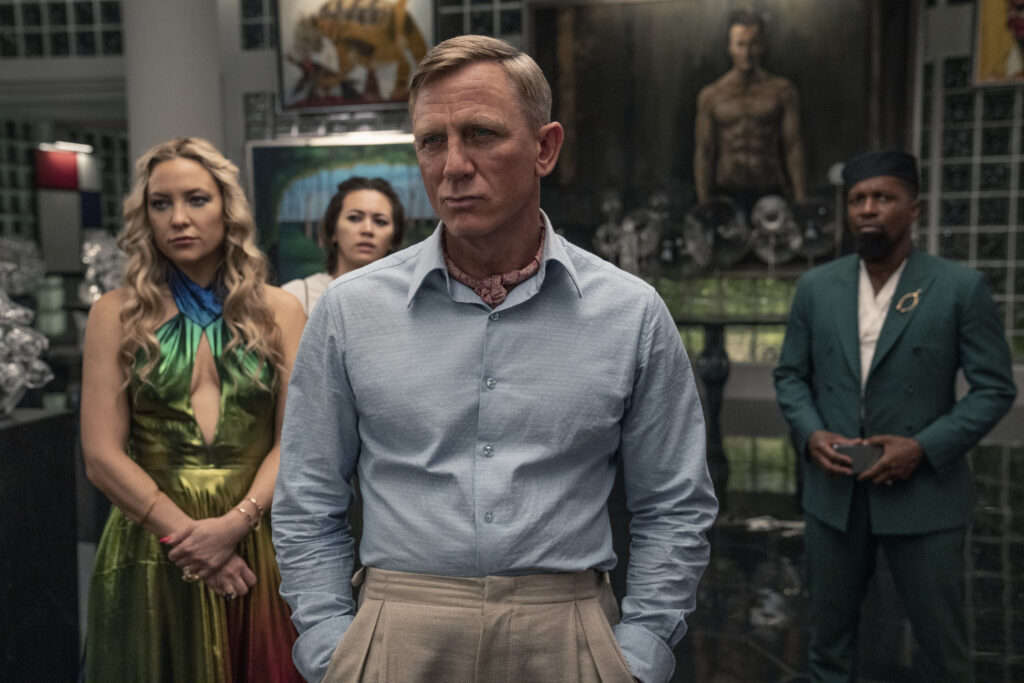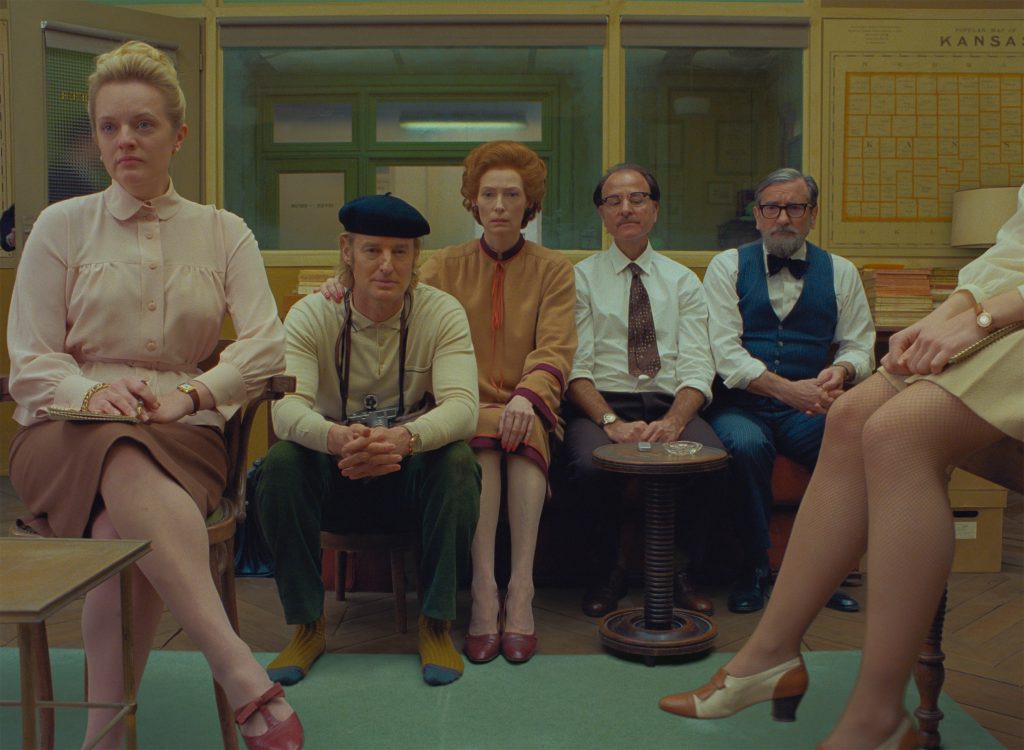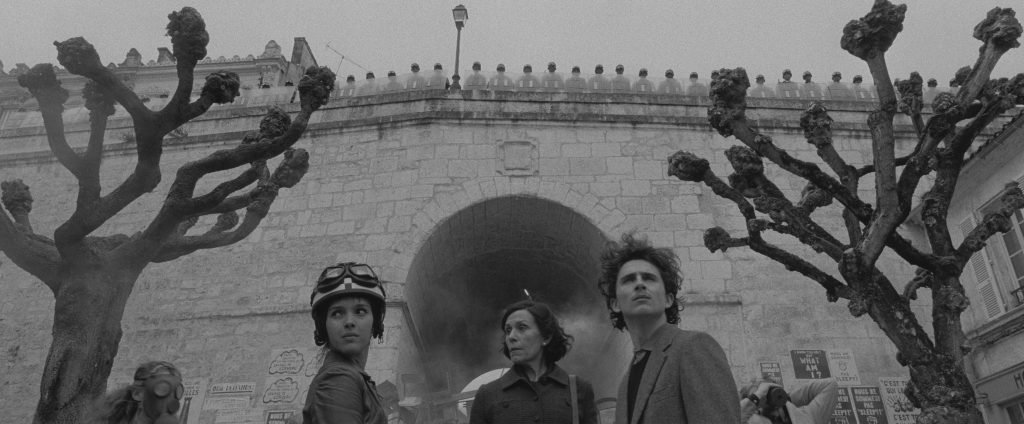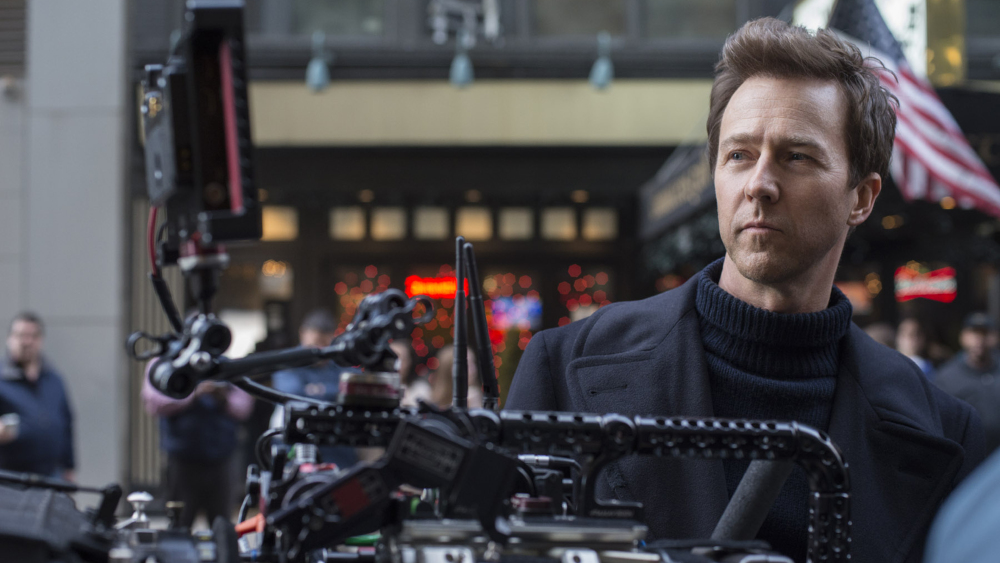March 23, 2024
by Carla Hay

Directed by Mary Mazzio
Culture Representation: The documentary film “Bad River” features a predominantly Native American group of people (with some white people and a few African Americans and Asians) representing the working-class and middle-class.
Culture Clash: The Bad River Band of the Lake Superior Tribe of Chippewa Indians and other Native Americans, who have battled for centuries against racism and oppression, are in a protracted fight to get Canadian oil company Enbridge to remove a dangerous pipeline running through their land in northern Wisconsin.
Culture Audience: “Bad River” will appeal primarily to people who are interested in documentaries about American history, environmental issues and political activism.

“Bad River” sounds an important alarm about the battle for civil rights and environmental protection in a crusade led by the Bad River Band of the Lake Superior Tribe of Chippewa Indians. This must-see documentary shows in unflinching ways how these issues affect everyone on a global level. It’s a documentary that is clearly on the side of justice for human rights and preservation of the environment, which should be concerns for people of any or no political persuasion.
Directed by Mary Mazzio, “Bad River” packs in a lot of interviews and information in its relatively brisk 88-minute runtime. The entire movie could easily have become unfocused and unwieldy, considering the magnitude of the subject matter, but the story in “Bad River” is told in a clear, concise and compelling manner. Mazzio, who is one of the documentary’s editors and producers, co-wrote the movie with Alec Sokolow. Quannah ChasingHorse and Edward Norton are the narrators in off-screen voiceovers.
There are two histories that intersect and are intertwined in “Bad River”: The history of the shameful treatment of Native Americans in the United States and the history of the shameful treatment of the environment. Even though the central location discussed in the movie is about a swath of land in northern Wisconsin, it serves as a microcosm to show that the problems in this area reflect larger global issues.
“Bad River” begins by describing the history of violent and oppressive white supremacist colonialism in the United States. Native Americans were displaced, discriminated against, tortured, and murdered so that white people could take possession of Native American land and resources that were previously owned by Native Americans. Legislation from white lawmakers made it legal to displace Native Americans.
The documentary mentions the Treaty of 1854, when the Chippewa tribe (also known as the Ojibwe tribe) of Lake Superior allowed U.S. government to own the Arrowhead region in northeastern Minnesota. The results of the treaty opened up more trading to and from overseas countres. Over time, various U.S government legislation (such as the Indian Relocation Act of 1956) promised better opportunities for Native Americans but actually continued to disenfranchise of Native Americans.
Native American children were separated from their parents and sent to boarding schools, which were often operated by the Catholic Church. These schools, which were operated like prisons, forbade the Native American children from smiling, laughing, speaking their Native languages, and practicing their Native religions. Most of the children were also physically and emotionally abused on a constant basis. Several Chippewa/Ojibwe people who attended these oppressive schools, as well as some of their descendants, are interviewed in the documentary.
The cruel irony is not lost on people who know that white Europeans who formed the United States and crafted the U.S. Constitution did so for various freedoms, but at the time, these “founding fathers” did not extend those freedoms to people who weren’t white. It’s common knowledge with people who are educated about U.S. history that the genocide of Native Americans allowed white colonialism to thrive before and after the United States became a nation.
Misty M. Jackson is one of several Chippewa/Ojibwe tribe members who are interviewed in “Bad River,” which gives the majority of the documentary’s perspectives and screen time to Native Americans. Jackson comments: “We are rich people, not in a monetary sense. Our knowledge is rich. Our strength is rich. Our resilience is rich.”
Fully understanding American history is to fully acknowledge how violent and brutal racism played a role in building the United States, says Sister Eileen McKenzie of the Franciscan Sisters of Perpetual Adoration, a Catholic nun order that taught in many of the Native American boarding schools in Wisconsin. “We were involved in a system of white supremacy,” she says regretfully.
Oppression of Native Americans is not ancient history but can be seen in today’s battles over fossil-fuel companies that own pipelines and other mechanisms that are polluting land and water that belong to Native American tribes. “Bad River” takes an up-close look at the Bad River Band of the Lake Superior Tribe of Chippewa Indians’ crusade against the Canadian oil company Enbridge, which has installed a pipeline called Line 5 that has been scientifically proven to be an imminent danger to the environment. The courageous people of this tribe have experienced injustices that are sickening and infuriating.
The Bad River Band’s concerns involve Lake Superior, the largest freshwater lake in the world and therefore one of the world’s most important ecosystems. In other words, this problem should not be misunderstood as an isolated incident affecting one region of the world, say several people in the documentary. “Bad River” includes valuable information on a business level and a legal level, but the documentary never loses sight of the humanity that it vital to tell this story.
“Bad River” acknowledges Native American’s generational trauma from systemic genocide and home displacement. Alcoholism and drug addiction are diseases that affect a large percentage of Native Americans. Some of the interviewees admit to be in recovery from these diseases or they talk about family members who are in recovery.
The fight for Native Americans and other people to live on land that isn’t being polluted by fossil-fuel companies has gotten constant pushback from the people who profit the most from the work that causes this pollution. “Bad River” shows through archival and news footage that when Native Americans stand up for themselves, they are often the targets of racist hate. Lisa Whitebird, a longtime activist, says of racists who attacked her during a protest: “They looked at me like I was a disease.” Ahnili Johnson-Jennings, a Native American activist, also points out that illegal trafficking of Native American women has sinister parallels to areas where oil pipelines are big business.
“Bad River” isn’t completely one-sided. Enbridge chief communications officer Mike Fernandez is shown defending Enbridge’s actions as Enbridge beng beneficial to the economy because the company provides jobs in the areas where Enbridge operates. Fernandez sidesteps addressing legal issues, such as Enbridge reneging on contracts with the Bad River Band to dismantle Line 5, resulting in lawsuits. Band River Tribe has turned down settlements worth millions of dollars because the costs to the environment and their health are much greater.
“Bad River” has interviews with several Native Americans, such as Kate Ante, Kris Arbuckle, Kathy Bender Ashmun, Joe Bates, Rae Bender, Tyler Bender, Mike Berlin, Brad Bigboy, Gary “Shine” Bigboy, Jody Bigboy-Lowmaster, Kevin Bruyneel, Myron “Burnsie” Burns, Hilary “Junie” Butler, Aurora Giizhigookwe Conley, Frank Connors Jr., Ben Connors Sr., Charles Misko Bikwaak Connors Sr., Eldred Corbine, Katherine Denomie, Bruce Ford Jr., Shawnee Ford, Gregory Gagnon, Tom Garcia, Joseph Gokee, Miigis Gonzalez, Dylan Bizhikiins Jennings, Ahnili Johnson-Jennings, Michelle Johnson-Jennings, Stephanie Julian,
Ed Leoso, Edith Leoso, Esie Leoso-Corbine, Runninghorse Livingston, Patty Loew, Victor Lopez-Carmen, Annie Maday, Aurene Martin, Maria Nevala, Caitlin Newago, David O’Connor, Darcie Powless, Joe Rose Sr., Jackie Rose, Joe Dan Rose, Bill Roundwind, Luanne Salawater, Mary Lou Salawater, Alton “Sonny” Ozaawaanaquad Smart, Scott Manning Stevens, April Ogimaakwe Stone, Ashley Waagoshens Stone, A’lyah Taylor, Beckie Taylor, Naomi Tillison, Anton Treuer, Stefanie Tsosie, Deb Tutor, Danny Wiggins Jr., Mike Wiggins Jr. and Gloria Waabigwan Wiggins.
Other people interviewed in the documentary include attorneys Riyaz Kanji (who represents Bad River Band), Kevin Maillard, Philomena Kebebec and Martin Seneca. The documentary’s interviewees also include Modernative blog creator Carole Bender Kraft and politics professor Kevin Bruyneel, author of “Settler Memory: The Disavowal of Indigeneity and the Politics of Race in the United States.”
Civil rights attorney Maillard comments on any laws that put Native American people at a disadvantage: “These policies [are about] ‘conquer and divide.” If one thing is clear by the end of the documentary, it’s that Native Americans and their allies should not be underestimated when they experience damaging oppression. As narrator ChasingHorse says about the “Bad River” documentary: “This is a story about resistance.”
AMC Theatres Distribution released “Bad River” in select U.S. cinemas on March 15, 2024.


